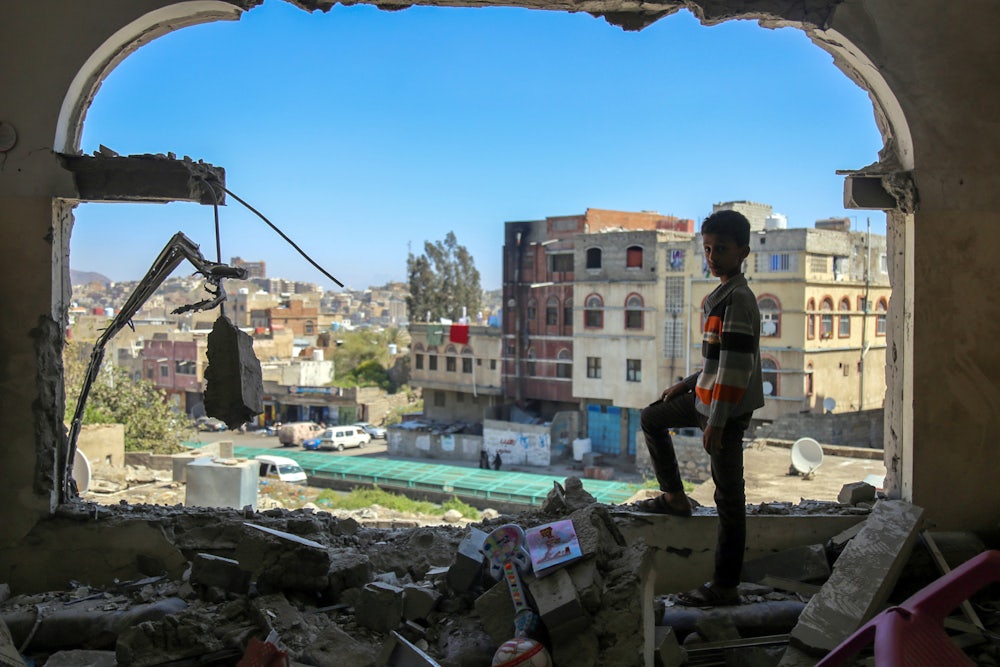The Wall Street Journal is reporting that the secretary of state has sidelined humanitarian objections to America’s backing of Saudi Arabia and the United Arab Emirates in their proxy war in Yemen against Iranian-supported Houthi fighters. The war has been going on for three years, creating millions of refugees and arguably the world’s worst current humanitarian crisis. Saudi Arabia’s conduct of the war has come under increasing criticism in the United States, particularly after an August airstrike hit a bus, killing dozens of civilians, most of whom were children. A majority of the more than 16,700 civilians killed or injured in the war have been victims of the Saudi campaign. A bipartisan group of lawmakers has pushed for the Trump administration to cut support for Saudi Arabia and the United Arab Emirates in this war.
Documents how that State Department officials agree with this congressional push but have been vetoed by Pompeo. As the Journal notes, “Pompeo overruled concerns from most of the State Department specialists involved in the debate who were worried about the rising civilian death toll in Yemen. Those who objected included specialists in the region and in military affairs. He sided with his legislative affairs team after they argued that suspending support could undercut plans to sell more than 120,000 precision-guided missiles to Saudi Arabia and the United Arab Emirates, according to a classified State Department memo and people familiar with the debate.”
Aside from valuing Gulf allies as markets for weapons, the Trump administration is likely motivated by more general strategic concerns. Supporting Saudi Arabia in its regional conflict with Iran has become a pillar of Trump’s foreign policy. The administration is also eager to get Saudi Arabia and other OPEC countries to increase their oil production, which might be easier to achieve if the United States continues to support its regional allies in Yemen.
